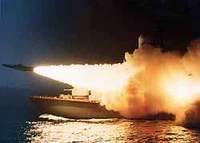China continues to deprive USA of its military predominance
It is easy to explain the fact that leading centers studying international relations are usually based in most developed Western countries. The latter, as a rule, define modern tendencies in world politics. However, there is an exception from the rule – the Institute of International Research in Denmark. Denmark is a small European country, which can hardly be dubbed as a leading member of international relations. However, the Dutch institute regularly prepares high-quality research works for the international expert community. In February, the center published the results of the missile potential of China.

When it goes about the non-proliferation of weapons of mass destruction, experts usually pay attention to technologies used for the production of lethal nuclear, chemical and biological weapon. However, any kind of weapons has to be delivered to the point of its destination. The global system of control for the non-proliferation of missile technologies is therefore extremely important in today’s world. The system was founded by the Group of Seven in 1987.
China is not listed as a member of this initiative. Beijing probably prefers not to burden itself with redundant international obligations. On the other hand, Western countries may try to follow this structure to expose China as a country that does not follow international standards.
China was not playing an important role on the market of ready-made missiles and missile technologies before the end of the Cold War. The situation changed in the beginning of the 1990s. The Chinese economy took a turn for the market development. The leaders of the Chinese defense complex were allowed to make earnings on their own without state’s participation and control. To crown it all, Beijing was becoming more active in terms of foreign policies.
China struck its first important deals in the missile industry with Saudi Arabia in 1988 and with Pakistan in 1992. It is worthy of note that the two contracts were signed with USA’s staunch allies. However, the USA did not rejoice over the growing military potential of its friends. Quite on the contrary, the USA lost its monopoly on many technologies which guaranteed the military predominance of the United States.
The Chinese administration prefers to avoid international scandals. Therefore, China currently sells spare parts, equipment for technical servicing, missile fuel technologies and provides technical support. China’s clients in this industry can be divided into three groups: members of the ‘axis of evil’ (Iran and North Korea for instance), USA’s allies that can bring unpleasant surprises for the superpower in the future (Saudi Arabia, Pakistan) and Latin American countries (Argentine and Brazil).
Chinese officials take certain efforts to join the global system for control of non-proliferation of missiles and missile technologies. If China becomes a member of the organization, the country will be able to access leading technologies of the West.
Politcom
Translated by Dmitry Sudakov
Pravda.ru
Subscribe to Pravda.Ru Telegram channel, Facebook, RSS!




